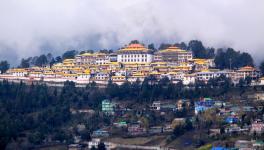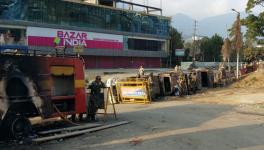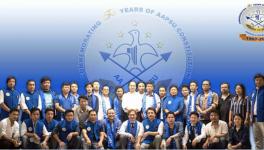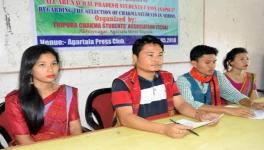Can AAPSU Find a Balance Between Tribal Rights and Lineage?
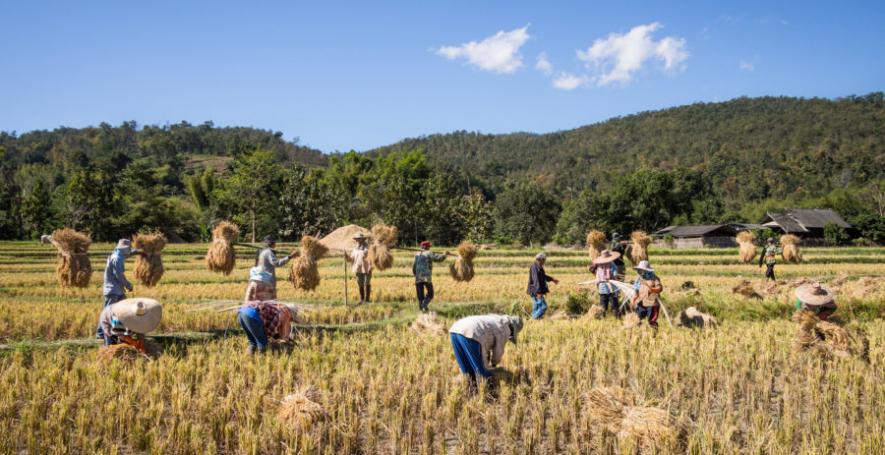
According to a report, the All Arunachal Pradesh Students Union (AAPSU) has demanded a list of names of all persons holding Arunachal Pradesh Scheduled Tribe (APST) certificates whose fathers are not APST holders. In this regard, the AAPSU has approached community organisations for the lists, which they have requested to be furnished within two months. It was reported that at a press conference in Itanagar, AAPSU General Secretary Tobom Dai referred to the issue as one that is more dangerous than the refugee issue. He further stated that it can kill the society from within. Dai also mentioned that the idea behind the move was to ensure that ‘indigenous rights are not infringed’.
Unlike Mizoram, Nagaland or Sikkim, the special Constitutional provisions for Arunachal Pradesh do not recognise customary law nor do they provide restrictions on land ownership. Article 371H only confers greater discretionary powers on the Governor, and renders the aid and advice of the Council of Ministers to mere suggestions. The Arunachal Pradesh government under Nabam Tuki had sought to repeal this provision and replace it with one along the lines of Articles 371A and 371G, which are the special provisions for Nagaland and Mizoram respectively. At present, the only law that restricts land ownership in Arunachal Pradesh is the Arunachal Pradesh Land Settlements and Records Act, 2000. Under section 88 of this Act, land can only be transferred to an APST certificate holder. Thus, the ST certificate carries a greater weightage in the state since it also confers eligibility for reservation in education and employment.
The aim of this exercise thus appears to be geared more towards ensuring that the ownership of the land remains local. To this effect, the APST certificate is assumed to be a badge of being indigenous. Thus, determining who is truly eligible to receive an APST certificate will determine who has ownership rights over land. The reason why AAPSU feels that this is a pressing issue is that there are many children of mixed marriages who have lived in Arunachal Pradesh and taken their mother’s surname. On this basis, they have applied for and received APST certificates. This also seems to be in line with the Supreme Court’s 2012 decision in Rameshbhai Dabhai Naika v. State Of Gujarat & Ors wherein the Court held that there is no hard and fast rule that a child can only inherit their father’s status.
The Court stated that:
“The determination of caste of a person born of an inter-caste marriage or a marriage between a tribal and a non-tribal cannot be determined in complete disregard of attending facts of the case. In an inter-caste marriage or a marriage between a tribal and a non-tribal there may be a presumption that the child has the caste of the father. This presumption may be stronger in the case where in the inter-caste marriage or a marriage between a tribal and a non-tribal the husband belongs to a forward caste. But by no means the presumption is conclusive or irrebuttable and it is open to the child of such marriage to lead evidence to show that he/she was brought up by the mother who belonged to the scheduled caste/scheduled tribe. By virtue of being the son of a forward caste father he did not have any advantageous start in life but on the contrary suffered the deprivations, indignities, humilities and handicaps like any other member of the community to which his/her mother belonged. Additionally, that he was always treated a member of the community to which her mother belonged not only by that community but by people outside the community as well.”
Arunachal Pradesh is not the first Northeastern state to witness such a demand. However, all the other states where similar demands have been raised had armed movements – Assam, Manipur, Meghalaya, Mizoram and Nagaland. The issues of land ownership, indigenous rights, and self-determination got intertwined with the language of the armed movements. Yet, this demand has appeared in a state devoid of locally grown armed movement. One solution to this issue could be for Parliament to repeal Article 371H and introduce another provision in its stead along the lines of Articles 371A (Nagaland) and 371G (Mizoram). Another option could be for more robust rules in granting APST certificates so as not to fall foul of the Supreme Court’s 2012 decision.
Get the latest reports & analysis with people's perspective on Protests, movements & deep analytical videos, discussions of the current affairs in your Telegram app. Subscribe to NewsClick's Telegram channel & get Real-Time updates on stories, as they get published on our website.









